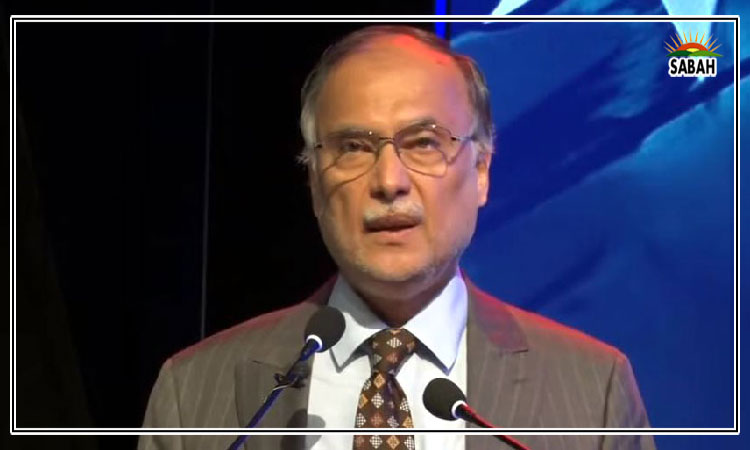Pakistan and the world debt problem… Shahid Javed Burki
The world debt problem in particular the burden carried by low income countries is now recognised by global economic experts to have become severe. It weighs heavily on the countries that have borrowed heavily from external sources of finance to the point where servicing the debt paying interest on the money borrowed and repaying what is due to the lenders leaves little to meet domestic needs for development and providing social services to the citizenry. As I wrote in the article that appeared in this space last week, this is not the first time in world economic history that external debt became a big problem. The situation following the end of the Second World War was one such event. Britain was a major victor of the war. The war that defeated Germany and Italy was financed largely by the United States which had to find a way of being paid back but also to rebuild the European mainland that had been left in ruins.
The victors assembled in the American resort of Bretton Woods in the American state of New Hampshire adopted a solution that was to work again several times. The victors created what came to be known as the Bretton Woods institutions the International Monetary Fund (IMF) and the International Bank for Reconstruction and Development (IBRD). The latter developed into what is now the World Bank Group. Large amounts of capital for financing these institutions was promised by the worlds rich countries. The promised money was divided into two parts paid in and call up. Only a small amount was paid in but the callable capital could be drawn in case the lending institutions had to take care of the defaults by the borrowers. It was the call up capital that made it possible for the international agencies to tap the capital markets at relatively low interest rates for the money they needed.
This approach was repeated in the 1980s when the countries in East Asia and Latin America had to pay large amounts of money to finance oil and gas purchases from the Middle East. The group that gave itself the name of Oil Producing and Exporting Countries (OPEC) decided to raise several-fold the price of their exports. This resulted in heavy debts for the energy importing countries which they financed by tapping the capital markets. Once again, the capital-rich countries went the way they had gone after the Second World War. They provided back-up capital which could be used by the heavily indebted countries to service the debt under which they laboured.
Once again, the world is faced with a similar situation. This time, many countries resorted to external borrowings to deal with the Covid-19 pandemic and the damage that was done to their economies. According to the IMF, 60 per cent of words low-income countries are in financial distress or approaching it. Pakistan is one of them. Without a plan to manage debt servicing, their economies will flounder, sapping global growth. The impacts of debt crises do not respect boundaries; they can have cascading effects on the global economy, said Janet Yellen, the United States Treasury Secretary while putting pressure on China when the world nations met in Washington for the IMF-World Bank Groups annual spring meetings. The Trump administration also blamed China for designing the projects it funded in ways to gain political influence in the countries that were receiving financial support from Beijing.
Once again international action is needed. Could this type of solution be adopted once again to help the heavily indebted countries remain solvent? The answer is yes but this time China rather than the United States will have to take the lead. China is the principal creditor, having lent billions of dollars to low-income countries in Asia and Africa. Pakistan is one of the countries that has borrowed heavily for Beijing which is financing projects included in the China-Pakistan Economic Corridor (CPEC) investment programme. Chinas overseas lending carries an average interest rate of 4 per cent, twice the typical for IMF funded programs.
Work is underway on finding a solution to the world debt problem. World leaders acting through the Group of 20 nations currently headed by India met in November 2020 and established a debt relief process aimed at benefitting several dozen of the worlds poorest nations. The process was called the Common Framework but it has made little progress. Beijing has blocked agreement by insisting that the IMF and the World Bank like private sector banks and government lenders take losses on their loans. But that is not the way the international system is structured. Any losses incurred by the institutions would land in the laps of rich nations because of the provision of callable capital that is part of the way these institutions are funded.
Nations that are eligible for the Common Framework must repay about $55 billion for serving their debt in 2023. However, they were able to raise only $6 billion from selling their bonds this year which was much less than the $17 billion raised in 2021. Some especially risky near-defaulters such as Pakistan must offer likely lenders a return that is 12 percentage points higher than what the can earn by investing in US Treasuries. This is 8 percentage points higher than was the case before the strike of the pandemic.
The main reason why China is holding out on activating the Common Framework is its unhappiness with the lack of a strong voice in the management of institutions such as the IMF and the World Bank. These institutions are reckoning with the situation that China now is a major financial power. According to Scott Morros, senior fellow at the Center for Global Development, a Washington-based think tank, whether youre head of the World Bank or the United States Treasury Department, youre stuck with the reality that China is a much bigger bilateral creditor than anyone else, certainly bigger than the United States. At this time Pakistan with close relations with China is on the right side of the global power equation.
There is pressure being exercised by Washington to have Pakistan leave Chinas orbit and be more independent in shaping its foreign affairs. It would be a great mistake if Islamabad succumbs to that pressure and distances itself from Beijing. Not only that approach would make it difficult to service the large amount of loans it has secured from China-based institutions, it will also lose the position it now occupies in developing land-based commerce with the landlocked countries to its north. CPEC is a way to take advantage of Pakistans location.
Courtesy The News












